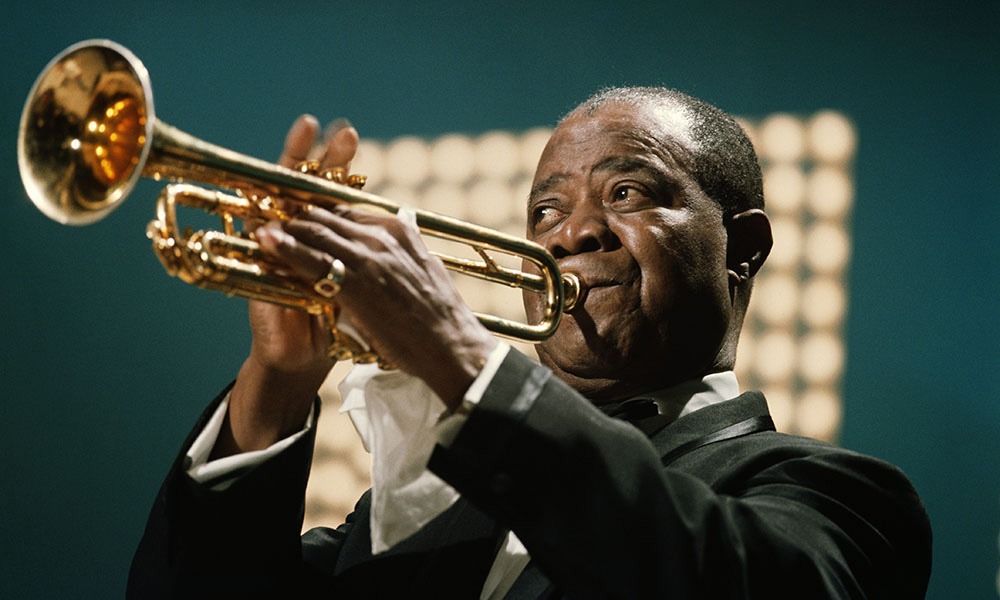Jazz artists, the trailblazers of musical improvisation, epitomize freedom of expression and innovation. They are the sonic explorers who navigate a musical landscape characterized by spontaneity, complexity, and boundless creativity.
Their music is a fusion of tradition and innovation, rooted in improvisation and characterized by syncopation, swing, and unique harmonic progressions. Jazz artists are virtuosos, weaving intricate melodies and harmonies that defy conventions, exploring the depths of emotion and pushing the boundaries of musicality.
Each jazz artist brings a distinct voice to their instrument, whether it’s the soulful wail of a saxophone, the intricate improvisations on a piano, the nimble fretwork of a guitar, or the vibrant rhythms of a trumpet. Their performances are a testament to technical brilliance, artistic vision, and the ability to engage in musical conversations that transcend language.
Beyond technical proficiency, jazz artists are storytellers. They channel emotions and experiences through their music, creating narratives that resonate with listeners on a profound level. Their ability to communicate feelings through spontaneous musical dialogue is a testament to their mastery and intuition.
From intimate jazz clubs to iconic festivals, jazz artists captivate audiences with their virtuosity and improvisational prowess. They leave an indelible mark on the musical landscape, influencing genres far beyond jazz itself, inspiring musicians to embrace experimentation and reminding us all of the limitless possibilities within music.
1. Louis Armstrong
Louis Armstrong, often hailed as “Satchmo” or “Pops,” stands as an iconic figure in the realm of jazz and American music. His impact reverberates through history, influencing generations of musicians and leaving an everlasting imprint on the genre.
Armstrong’s genius lay not only in his unparalleled trumpet playing but also in his distinctive gravelly voice and innovative improvisational skills. He revolutionized jazz, introducing improvisation as a cornerstone of the genre, and popularized scat singing, a vocal technique using nonsensical syllables to create melodic lines.
His trumpet mastery was unparalleled, characterized by expressive phrasing, technical brilliance, and an ability to convey a vast range of emotions through his instrument. His solos were vibrant, spirited, and filled with joy, captivating audiences worldwide.
Beyond his musical talent, Armstrong’s personality was equally magnetic. His infectious smile, warmth, and charisma transcended racial barriers, becoming a symbol of unity and positivity during a time of racial tension and segregation.
His recordings, such as “What a Wonderful World” and “Hello, Dolly!,” became timeless classics, showcasing his versatility and endearing charm. Armstrong’s influence extended beyond jazz, shaping popular music and inspiring countless artists across genres.
Louis Armstrong’s legacy continues to resonate, reminding us of the transformative power of music to transcend boundaries and uplift the human spirit. He remains an enduring icon, celebrated not only for his musical contributions but also for his spirit of joy, resilience, and unwavering dedication to his craft.
2. Duke Ellington
Duke Ellington, born Edward Kennedy Ellington (April 29, 1899 – May 24, 1974), was an American composer, pianist, and bandleader. He is widely considered one of the most influential figures in jazz music and a prolific composer who wrote thousands of compositions over his career.
Ellington’s career spanned several decades, and he played a key role in the development of various jazz styles, including swing, big band, and orchestral jazz. He led his renowned orchestra, the Duke Ellington Orchestra, from 1923 until his death in 1974. The orchestra was known for its distinct sound, innovative arrangements, and the exceptional talents of its members.
Some of Duke Ellington’s most famous compositions include “Take the ‘A’ Train,” “Mood Indigo,” “Sophisticated Lady,” “Caravan,” and “It Don’t Mean a Thing (If It Ain’t Got That Swing).” His music transcended traditional boundaries, blending elements of jazz, blues, classical, and popular music.
Throughout his career, Duke Ellington received numerous honors and awards, including multiple Grammy Awards. In 1969, he was awarded the Presidential Medal of Freedom, one of the United States’ highest civilian honors, by President Richard Nixon.
Duke Ellington’s impact on the world of music and his role in shaping the evolution of jazz have left a lasting legacy, and he is remembered as one of the true giants of American music.
3. Miles Davis
Miles Davis (May 26, 1926 – September 28, 1991) was an iconic American jazz trumpeter, composer, and bandleader. He was one of the most influential and innovative figures in the history of jazz, shaping the genre through multiple phases of his career.
Davis was born in Alton, Illinois, and began playing the trumpet at a young age. He first gained recognition in the mid-1940s as a member of Charlie Parker’s bebop quintet. As the years progressed, Davis became a central figure in the development of various jazz styles, including cool jazz, hard bop, modal jazz, and jazz fusion.
Some of his most celebrated albums include “Kind of Blue” (1959), which is one of the best-selling jazz albums of all time and a landmark in modal jazz, and “Bitches Brew” (1970), a groundbreaking fusion album that marked a shift toward electric instruments and a more experimental sound.
Miles Davis was known for his distinctive trumpet sound, often characterized by a muted, breathy tone. His ability to evolve and experiment with different styles, combined with his collaborations with other jazz greats, contributed to his lasting impact on the genre.
Throughout his career, Davis worked with many influential musicians, including John Coltrane, Herbie Hancock, Wayne Shorter, and Tony Williams, among others. His influence extends beyond jazz, as he played a crucial role in the development of modern music and influenced genres such as rock and hip-hop.
Miles Davis received numerous awards, including eight Grammy Awards. His contribution to the world of music earned him a place in the Rock and Roll Hall of Fame in 2006. Miles Davis remains a legend in the history of jazz and an enduring figure in the evolution of American music.
4. John Coltrane
John Coltrane stands as an avant-garde visionary in the world of jazz, revered for his unparalleled contributions to the genre and his trailblazing approach to music. A saxophonist and composer, Coltrane redefined the possibilities of jazz, pushing its boundaries with his innovative improvisations and harmonic explorations.
His playing style was characterized by a mesmerizing virtuosity, technical brilliance, and an unrelenting quest for musical expression. Coltrane’s solos were transcendent, marked by their intensity, intricate patterns, and spiritual depth. He delved into modal jazz, employing scales and tonalities to create a musical language that expanded the genre’s horizons.
Coltrane’s experimentation with dissonance and complex harmonic structures challenged traditional conventions, paving the way for free jazz and avant-garde movements. His masterpiece album “A Love Supreme” remains a cornerstone of jazz, a spiritual journey encapsulating his musical and personal quest for enlightenment and higher consciousness.
Beyond his technical prowess, Coltrane’s music was imbued with profound spirituality and emotion. He used his saxophone as a conduit for transcendental experiences, expressing a wide spectrum of feelings, from deep introspection to ecstatic joy.
His impact on jazz and music, in general, continues to resonate profoundly. Coltrane’s legacy extends far beyond his era, influencing musicians across genres and generations. His commitment to artistic exploration and his unwavering dedication to pushing the boundaries of musical expression solidify his place as one of the most influential figures in the history of jazz and a beacon of innovation and creativity.
5. Charlie Parker
Charlie Parker, affectionately known as “Bird,” stands as a towering figure in the history of jazz, heralded for his groundbreaking innovations and unparalleled contributions to the genre. As a saxophonist, composer, and improviser, Parker revolutionized jazz with his virtuosity, harmonic innovations, and lightning-fast improvisational skills.
Parker was a trailblazer of bebop, a genre characterized by its complex chord changes, fast tempos, and improvisational freedom. His improvisations were marked by dazzling speed, melodic inventiveness, and rhythmic intricacies that set new standards for jazz musicians.
His recordings, such as “Ko-Ko,” “Ornithology,” and “Confirmation,” showcased his remarkable talent, introducing a new vocabulary and approach to jazz improvisation. Parker’s virtuosic saxophone playing redefined the possibilities of the instrument and became the blueprint for countless musicians who followed in his footsteps.
Beyond his technical brilliance, Parker possessed an innate musical genius, effortlessly weaving together intricate melodies and harmonies. His compositions and improvisations were filled with emotion, depth, and an unparalleled sense of musicality.
However, Parker’s life was also marked by personal struggles, including battles with substance abuse. Despite his tragically short life, his impact on jazz was profound and enduring. His legacy continues to influence generations of musicians, transcending the boundaries of jazz and leaving an indelible mark on the evolution of music as a whole.
Charlie Parker’s innovation, artistry, and sheer musical brilliance cement his place as one of the most influential and iconic figures in the history of jazz, forever shaping the landscape of music with his unparalleled talent and revolutionary approach to improvisation and composition.
6. Dizzy Gillespie
John Birks “Dizzy” Gillespie (October 21, 1917 – January 6, 1993) was an American jazz trumpeter, composer, bandleader, and singer. He was one of the key figures in the development of bebop, a complex and innovative style of jazz that emerged in the 1940s.
Gillespie was born in Cheraw, South Carolina, and began playing the trumpet at a young age. He moved to New York City in the early 1930s, where he quickly became involved in the vibrant jazz scene. Gillespie’s virtuosic trumpet playing and his penchant for experimentation made him a central figure in the evolution of jazz during the bebop era.
One of Dizzy Gillespie’s most significant contributions was his collaboration with saxophonist Charlie Parker. Together, they pioneered the bebop movement, introducing new harmonic and rhythmic complexities to jazz. Gillespie’s compositions, such as “A Night in Tunisia” and “Salt Peanuts,” became bebop standards.
In addition to his musical innovations, Gillespie was known for his charismatic stage presence and his trademark trumpet with a bent bell, the result of an accident when someone accidentally fell on his instrument during a dance. He incorporated elements of Afro-Cuban and Latin music into his repertoire, contributing to the development of Afro-Cuban jazz.
Dizzy Gillespie’s career spanned several decades, during which he continued to explore and experiment with different styles of jazz. He led his own big bands and small groups, influencing generations of musicians with his creativity and technical prowess.
Gillespie received numerous awards during his career, including 14 Grammy Awards. In 1989, he was awarded the National Medal of Arts, and in 1990, he received the Kennedy Center Honors. Dizzy Gillespie’s legacy extends far beyond his lifetime, and he is remembered as one of the greatest trumpeters and innovators in the history of jazz.
7. Count Basie
Count Basie, a luminary in the world of jazz, was a pianist, bandleader, and composer whose contributions have left an indelible mark on the genre. Renowned for his innovative approach to big band music, Basie became synonymous with swing and created an iconic sound that defined an era.
His orchestra, the Count Basie Orchestra, was a powerhouse ensemble characterized by its tight, swinging arrangements and emphasis on rhythmic precision. Basie’s minimalist piano style served as the backbone of the band, laying down deceptively simple yet incredibly effective rhythms that allowed his stellar musicians to shine.
Basie’s leadership style was unique; he believed in giving his musicians ample room for individual expression, fostering a collaborative atmosphere within the band. His ensemble became a breeding ground for legendary talent, featuring remarkable musicians such as Lester Young, Buck Clayton, and many others.
Hits like “One O’Clock Jump,” “April in Paris,” and “Jumpin’ at the Woodside” became emblematic of Basie’s signature sound, characterized by infectious swing, expertly crafted arrangements, and an irresistible groove.
His impact on jazz extended beyond his musical achievements; Basie’s legacy lies in his ability to bridge the gap between the sophistication of big band arrangements and the infectious energy of swing music. His contributions continue to influence jazz and big band music, serving as a timeless testament to his genius as a bandleader and his enduring impact on the evolution of jazz. Count Basie remains an icon, celebrated for his groundbreaking contributions that shaped the very essence of swing and big band jazz.
8. Ella Fitzgerald
Ella Fitzgerald, often referred to as the “First Lady of Song” or the “Queen of Jazz,” stands as one of the most revered and influential vocalists in the history of music. With a voice that effortlessly soared across octaves, she possessed a rare combination of technical brilliance, emotional depth, and unparalleled artistry.
Fitzgerald’s vocal prowess was unparalleled, characterized by her remarkable range, exquisite phrasing, and exquisite control. Her pure, crystal-clear tone and ability to improvise with scat singing made her an incomparable force in jazz. She transformed songs with her unique interpretations, breathing new life into classics with her dazzling vocal virtuosity.
Her collaborations with jazz luminaries like Duke Ellington, Louis Armstrong, and Count Basie produced timeless recordings that became iconic in the world of jazz. Tracks like “Summertime,” “A-Tisket, A-Tasket,” and her interpretations of the Great American Songbook remain a testament to her brilliance and enduring influence.
Beyond her technical prowess, Fitzgerald’s warmth and sincerity resonated deeply with audiences worldwide. Her performances exuded joy, sophistication, and an infectious love for music that transcended boundaries and touched the hearts of all who listened.
Notably, Fitzgerald broke racial barriers in the music industry, becoming one of the first African American female artists to achieve widespread acclaim and success, earning numerous accolades, including multiple Grammy Awards.
Ella Fitzgerald’s legacy extends far beyond her era, inspiring countless singers across genres and generations. Her impact on jazz and popular music remains immeasurable, solidifying her place as a true legend whose voice continues to captivate and enchant audiences, leaving an enduring mark on the world of music.
9. Billie Holiday
Billie Holiday, born Eleanora Fagan (April 7, 1915 – July 17, 1959), was an American jazz and blues singer and one of the most iconic and influential vocalists in the history of jazz music. She is often referred to as “Lady Day.”
Holiday had a difficult and tumultuous life, marked by poverty, discrimination, and personal struggles. Despite these challenges, she left an indelible mark on the world of music with her unique voice, emotional delivery, and ability to convey deep emotions in her performances.
Some of Billie Holiday’s most famous and enduring recordings include “Strange Fruit,” a powerful and haunting song that addressed the issue of racial violence, and classics like “God Bless the Child,” “Summertime,” “Lady Sings the Blues,” and “Good Morning Heartache.” Her vocal style was characterized by a distinctive phrasing, subtle use of dynamics, and a deep emotional resonance that allowed her to interpret a wide range of songs with authenticity and expressiveness.
Holiday’s collaborations with jazz legends such as Lester Young, Teddy Wilson, and Count Basie are particularly noteworthy. She was also known for her ability to transform popular songs of the time into jazz standards, giving them a timeless quality.
Unfortunately, Billie Holiday faced personal struggles, including substance abuse and legal issues, throughout her life. Her struggles were exacerbated by racial and gender discrimination. She spent time in prison and battled with drug addiction, which ultimately contributed to her premature death at the age of 44.
Despite the challenges she faced, Billie Holiday’s impact on jazz and popular music has endured. Her influence can be heard in the work of countless singers who followed in her footsteps. In 2000, she was posthumously awarded the Grammy Lifetime Achievement Award, and her contributions to music and culture continue to be celebrated and remembered.
10. Dave Brubeck
Dave Brubeck, an iconic pianist and composer, stands as a trailblazer in the world of jazz, celebrated for his innovative approach to music and his contributions to the genre. Brubeck’s unique musical vision combined complex rhythms, adventurous harmonies, and a profound sense of melody, creating a sound that defied convention and captivated audiences worldwide.
He gained widespread recognition as the leader of the Dave Brubeck Quartet, where his piano playing became synonymous with cool jazz and his groundbreaking use of unusual time signatures, notably in the famous piece “Take Five,” composed by saxophonist Paul Desmond. This 5/4 time signature composition became an iconic jazz standard and showcased Brubeck’s ability to blend complex rhythms with infectious melodies.
Brubeck’s compositions often fused classical influences with jazz, exploring unconventional structures and harmonies that pushed the boundaries of the genre. His album “Time Out” remains a landmark recording, showcasing his experimentation with different time signatures and paving the way for jazz’s exploration of non-traditional rhythms.
Beyond his musical innovations, Brubeck’s commitment to social causes, including his performances in support of civil rights, highlighted his belief in the unifying power of music and its ability to bridge divides.
His legacy as a pianist, composer, and ambassador of jazz music is profound. Brubeck’s contributions continue to influence musicians, transcending generations and genres, and his commitment to musical exploration and social consciousness solidify his place as a revered figure in the pantheon of jazz legends.
11. Bill Evans
Bill Evans (1929–1980) was an American jazz pianist renowned for his introspective and influential approach to the piano. Born in Plainfield, New Jersey, Evans rose to prominence in the late 1950s and early 1960s, leaving an indelible mark on the history of jazz.
Evans became widely recognized for his work with Miles Davis, particularly on the seminal album “Kind of Blue” (1959), where his delicate touch and modal improvisation contributed to the album’s timeless appeal. He later formed his own trios, notably with bassist Scott LaFaro and drummer Paul Motian, and his innovative interplay with the trio members set new standards for small-group jazz.
Key aspects of Bill Evans’s legacy include his harmonic sophistication, unique voicings, and a lyrical approach to improvisation. His albums like “Sunday at the Village Vanguard” and “Waltz for Debby,” recorded live in the early 1960s, exemplify the emotional depth and telepathic communication within his trios.
Evans also explored solo piano recordings, revealing his mastery of touch and dynamics. Notable among these is “Conversations with Myself” (1963), where Evans overdubbed multiple piano parts.
Tragically, Bill Evans battled personal demons, including drug addiction, throughout his life, and he passed away in 1980 at the age of 51. Despite his relatively short career, his impact on jazz piano remains profound, and he is remembered as one of the genre’s most innovative and expressive artists.
12. Thelonious Monk
Thelonious Monk, a pioneering pianist and composer, left an indelible mark on jazz, revered for his unique approach to music that defied conventions and reshaped the genre. Monk’s compositions and playing style were marked by innovation, dissonance, angular melodies, and a distinctive use of space and silence.
His contributions to jazz were revolutionary. Monk’s compositions, such as “Round Midnight,” “Blue Monk,” and “Straight, No Chaser,” became timeless classics, showcasing his unconventional harmonic structures and rhythmic complexities. His idiosyncratic piano playing featured percussive attacks, unexpected pauses, and intricate chord voicings that challenged traditional norms.
Monk’s approach to improvisation was unconventional yet deeply expressive. He utilized dissonance and unpredictability in his playing, creating a sense of tension and unpredictability that added depth and intrigue to his performances.
Beyond his music, Monk’s eccentric personality and enigmatic stage presence added to his mystique. His idiosyncrasies were part of his allure, and his dedication to his artistry was unwavering.
Monk’s influence extended far beyond his lifetime, shaping the course of modern jazz. His innovations continue to inspire musicians across genres, and his compositions remain a fundamental part of jazz education, admired for their complexity and depth.
Thelonious Monk’s legacy as a visionary composer and pianist remains unparalleled. His fearless exploration of uncharted musical territories and his unwavering commitment to his artistic vision solidify his place as an icon in the history of jazz, leaving an enduring impact on the evolution of music.
13. Charles Mingus
Charles Mingus (April 22, 1922 – January 5, 1979) was an American jazz double bassist, composer, bandleader, and one of the most dynamic and innovative figures in the history of jazz. Mingus was not only a virtuoso bassist but also a prolific and visionary composer, pushing the boundaries of jazz with his eclectic and groundbreaking compositions.
Known for his commanding stage presence, Mingus led his bands with intensity, passion, and a deep commitment to artistic expression. His music seamlessly blended elements of blues, gospel, classical, and avant-garde jazz, creating a sound that was uniquely his own. Mingus’s compositions, such as “Goodbye Pork Pie Hat” and “Haitian Fight Song,” are celebrated for their emotional depth, intricate arrangements, and social commentary.
Mingus worked with many jazz luminaries, including Charlie Parker, Dizzy Gillespie, and Duke Ellington, and he formed influential groups of his own. His album “Mingus Ah Um” (1959) is considered a jazz classic, showcasing his diverse musical influences and compositional prowess.
Beyond his musical contributions, Mingus was an outspoken advocate for civil rights and artistic freedom. His legacy endures not only in the recordings that showcase his musical genius but also in the profound impact he had on the evolution of jazz as an art form that transcends boundaries and challenges conventions.
14. Herbie Hancock
Herbie Hancock, a musical visionary, stands as one of the most innovative and influential figures in jazz and contemporary music. A pianist, composer, and bandleader, Hancock’s career spans decades, marked by continuous innovation and a relentless pursuit of musical exploration.
His early work with Miles Davis during the 1960s was groundbreaking, contributing to Davis’s electric period and revolutionizing the sound of jazz. Hancock’s contributions to Davis’s quintet and his involvement in albums like “Miles Smiles” and “In a Silent Way” showcased his virtuosity and adventurous approach to harmony and rhythm.
As a bandleader, Hancock’s eclectic style blended jazz with elements of funk, rock, and electronic music, pioneering a fusion genre that pushed the boundaries of traditional jazz. His album “Head Hunters,” featuring the iconic track “Chameleon,” became a landmark in jazz fusion, incorporating synthesizers and funk rhythms into the jazz landscape.
Hancock’s embrace of technology and his willingness to experiment with new sounds and technologies have been a hallmark of his career. He continued to evolve, exploring different genres and collaborating with artists across diverse musical landscapes.
His compositions, such as “Watermelon Man,” “Cantaloupe Island,” and “Maiden Voyage,” have become jazz standards, admired for their innovation and melodic brilliance.
Beyond his musical achievements, Hancock’s influence extended into education, technology, and humanitarian efforts. His role as UNESCO Goodwill Ambassador and his advocacy for music education reflect his commitment to using music as a means of cultural exchange and social impact.
Herbie Hancock’s legacy as a musical innovator and visionary continues to shape the landscape of jazz and contemporary music. His ability to bridge genres, his fearless exploration of new sounds, and his dedication to musical excellence solidify his place as a true icon in the world of music.
15. Oscar Peterson
Oscar Peterson, a Canadian jazz pianist and composer, stands as one of the most extraordinary virtuosos in the history of jazz. Renowned for his dazzling technique, impeccable improvisation, and soulful playing, Peterson left an indelible mark on the genre, earning admiration and accolades worldwide.
His piano mastery was unparalleled, characterized by lightning-fast dexterity, harmonic sophistication, and a remarkable sense of swing. Peterson’s performances were marked by breathtaking displays of technical brilliance combined with an innate musicality that captivated audiences.
Peterson’s style traversed various jazz genres, from swing to bebop and beyond, showcasing his versatility and musical depth. His innovative approach to reharmonization and his ability to infuse standards with his unique improvisational flair set him apart as a true jazz giant.
As a bandleader, Peterson led various trios and quartets, collaborating with some of the finest musicians in jazz, including bassist Ray Brown and guitarist Herb Ellis. The Oscar Peterson Trio’s recordings, like “Night Train,” “We Get Requests,” and “The Trio,” are hailed as classics, demonstrating the group’s unparalleled chemistry and Peterson’s virtuosity.
His influence extended far beyond his performances. Peterson was a mentor and inspiration to countless musicians, and his contributions to jazz education were profound. He served as a beacon of excellence and a role model for aspiring pianists and musicians worldwide.
Oscar Peterson’s legacy remains an enduring testament to his musical genius and unparalleled artistry. His remarkable technique, boundless creativity, and profound impact on jazz solidify his place as one of the greatest pianists in the history of music.








